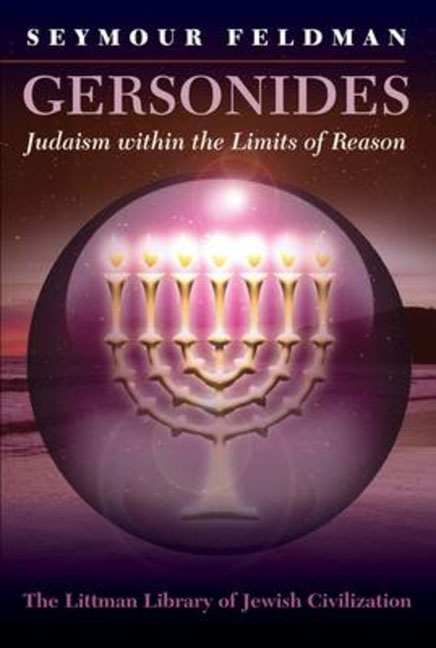Book contents
- Frontmatter
- Dedication
- Acknowledgements
- Contents
- Note on Transliteration
- Note on Sources
- 1 Introduction: Life and Works
- 2 The Story of Creation
- 3 God and his Attributes
- 4 Divine Omniscience
- 5 Divine Providence
- 6 Divine Omnipotence
- 7 Prophecy
- 8 Humanity and its Destiny
- 9 The Torah
- 10 Conclusion
- Bibliography
- Index
2 - The Story of Creation
- Frontmatter
- Dedication
- Acknowledgements
- Contents
- Note on Transliteration
- Note on Sources
- 1 Introduction: Life and Works
- 2 The Story of Creation
- 3 God and his Attributes
- 4 Divine Omniscience
- 5 Divine Providence
- 6 Divine Omnipotence
- 7 Prophecy
- 8 Humanity and its Destiny
- 9 The Torah
- 10 Conclusion
- Bibliography
- Index
Summary
Gersonides’ Cosmological Conundrums
THE EARLIEST DRAFT OF Wars was a monograph devoted to the single problem of the creation of the world. We have already noted that Gersonides held that this question, so important not only to philosophy but to Judaism as well, had not been adequately treated by Maimonides. (Although he does not mention Averroes at all in his discussion of this problem, Gersonides would not have been happy with the latter's views, which echoed Aristotle's doctrine of an eternal universe.) According to Gersonides, Maimonides’ theory of creation was deficient because of its hasty scepticism about the decidability of the question, but it was also erroneous in its uncritical adoption of the ex nihilo account of creation and in foisting this theory on Scripture. Against Maimonides, Gersonides argued that (1) the creation of the world is provable and (2) the world was not created ex nihilo. Now, in his case for creation Gersonides answers Maimonides by presenting a battery of arguments that he believes prove that the world is not eternal. But this undertaking involves him in an extended debate with Aristotle, who believed that he had proved the eternity of the world. Aristotle's arguments for this thesis are various and detailed, and Gersonides’ refutations of them are correspondingly many and lengthy. Thus, most of part 1 of Book 6 of Wars is an indirect criticism of Maimonides’ cosmological scepticism by means of a direct refutation of Aristotle's cosmological dogmatism.
Since in the final version of Wars the subject of creation takes up twentynine chapters, by far the longest section of the book, the reader might wonder why this particular topic warrants such an extensive and detailed treatment. After all, Maimonides too recognized the importance of the question, and he devoted just eighteen chapters to it, some of them modest in size. In the first place, like Maimonides, Gersonides considered the creation of the world to be one of the central dogmas of Judaism, especially because it highlights the volitional and providential character of divine activity and thus allows room for miracles. A world that is eternal is a necessary effect of divine causation, regardless of whether we interpretGod as the first unmoved mover, as Aristotle did, or as the first eternal agent from whom the world eternally derives or emanates, as Plotinus and the medieval Muslim philosophers maintained.
- Type
- Chapter
- Information
- GersonidesJudaism within the Limits of Reason, pp. 28 - 58Publisher: Liverpool University PressPrint publication year: 2015



